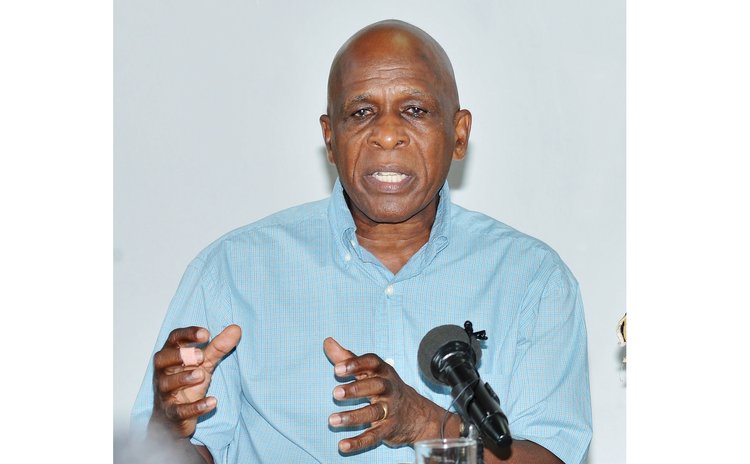We Are Older, Not Over
By Nigel Lawrence, President of the Dominica Council on Ageing

This year, the Dominica Council On Ageing (DCOA) pays homage to all the citizenry of Dominica that is considered "elderly persons", a title the United Nations refers to as "Older Persons" to signify persons over the age of 60 years. In our Dominican context, the elderly are commonly used to elucidate the same connotation.
In paying tribute to the "Elderly" this year, the theme "We are Older, Not Over" has been developed to bring out the message and to create the awareness that Older Persons are a force to be reckoned with. They are a cohort of society that is as important as any other grouping of the nation's demography.
Being elderly today is not a stroke of luck or an accident; it is an inevitable process that all who live long enough must go through. As the adage goes, "As long as you are breathing, you are growing older", but not all humankind is lucky enough to experience this journey and its attending joys, trials, challenges and consequences. Some schools of thought have espoused that this route is not for the weak heart.
Worked Harder
Our elderly have contributed to advancing all civilisations, and our beloved nation of Dominica is no exception. This classification of people, older people, were once upon a time, a young, vibrant element of society who blazed the trail and set the foundation for what the present-day youth have to build on. They have worked harder than present-day elements of society because the level of automation and technology prevalent today were not available then. Most of our elderly's functions were laborious and painstakingly manual. Despite these challenges, they got the job done; they conquered the seemingly impossible and consequently, the nation progressed.
The theme of this year's celebration is recognising that the elderly folks have to make way for those who are young at heart. Consequently, the incoming generations must be conscious that there could not be a today without a yesterday and a possible tomorrow. The experiences of the past, which are the foundation for what is and which is being built on today and to be continued tomorrow, cannot be allowed to go unnoticed and unharnessed. Hence, there must be a synergy between the old and the new and a fluid transition from the past to the present.
Give Them Their Flowers Now
For the above to be realised, there is a need to accept and profess that the Older Persons in our respective communities have made their contributions to the best of their abilities and the circumstances of the times. There is no need to give them their flowers after they have departed the face of this earth. They must make heroes/heroines and be considered icons while they can sense these accolades. They must be held up high for their achievements regardless of what echelon of society they come from. They must be respected, cherished and considered as a repository of knowledge and an archive of proven experience.
In the same vein, every effort must be made to eschew any probability of the expertise of these individuals being allowed to disappear and get lost in thin air. Hence, as mentioned earlier, there must be a concerted effort to use many modern-day mechanisms and technology to save the day.
Elders are not Spent
By extension, our elderlies must stop being or never be considered as spent. Their physical prowess may have diminished, but their intellectual and mental capacities are not over. How can the productivity of an individual change so drastically that once retirement age has been attained, that individual's world is over?
The culture of a person's capabilities being considered suddenly "over" because one has attained the age of 60 or 65 years is too predominant in our society today. Statistics would reveal that the more significant portion of society's wealth (monetary or intellectual) resides in the elderly sectors of society. If this is taken on board, we must ask, are we on the right track?
This clarion call is for all who shape policies, laws, societal trends, etc. They must recalibrate their stance because the elderly are older but not over.




